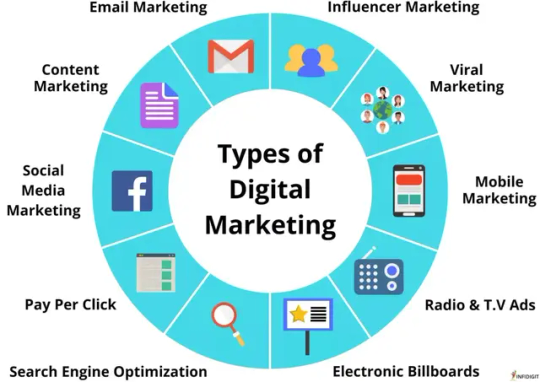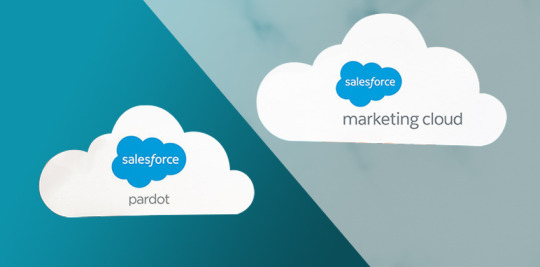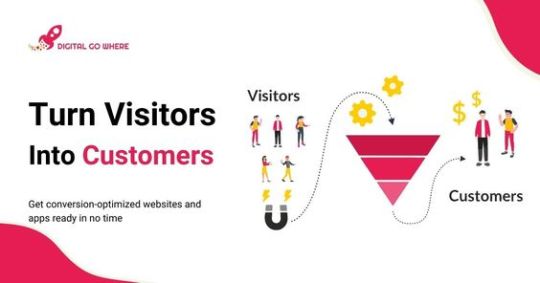#Pardot Marketing Automation
Explore tagged Tumblr posts
Text
Salesforce Commerce Cloud | Cloudy Coders
Salesforce Commerce Cloud
With our team of experienced consultants, you can now easily manage and optimize your eCommerce operations on the cloud. Our Salesforce solution helps you unify data-driven experiences across all channels, allowing for a seamless transition from browsing to purchase.
We’ll help you take advantage of the latest features and get the most out of your digital commerce platform. Try it now and discover how easy it is to start optimizing your eCommerce operations.
#business#marketing#sales#experience#automation#emailmarketing#power#engagement#salesforce#pardot#salesforcepardot#salesforceconsultant#salesforceconsulting#salesforceconsultants#salesforceimplementation#salesforceintegration#management#help#cloud#team#digital#data#ecommerce#commerce#consultants#salesforcecommercecloud
6 notes
·
View notes
Text
Supercharge Your Marketing: Unleashing The Power Of Salesforce Pardot

Boost your advertising with Stark Edge! Discover all that Salesforce Pardot has to offer—it's a marketing automation game-changer. Pardot can be seamlessly integrated to enable dynamic engagement, personalize customer experiences, and nurture leads. With Stark Edge, you can make sure you utilize every tool available in the Pardot arsenal, from analytical analytics to targeted email campaigns. Boost your marketing plan with quantifiable outcomes, efficiency, and automation. Stark Edge clears the path for companies to succeed in the digital sphere by helping them connect with and connect with their audience. Are you prepared to unleash Pardot's power? Let Stark Edge be your go-to resource for top-notch marketing!
#Salesforce Pardot USA#salesforce marketing cloud CA#marketing automation agency Stark Edge#pardot einstein implementation guide#pardot implementation guide USA#salesforce project management
0 notes
Photo

Ready to revolutionize your marketing efforts? Get started with Salesforce Pardot today and unlock the full potential of your marketing automation strategy.https://qrsolutions.com.au/solutions/salesforce/pardot/
0 notes
Text
Maximizing ROI: The Best Marketing Tools for Financial Services Professionals
Introduction
In the competitive landscape of financial services, professionals must leverage the right marketing tools to maximize their return on investment (ROI). With increasing digital advancements, it is essential to utilize a mix of traditional and digital strategies to build trust, generate leads, and improve client retention. This guide explores the best marketing tools financial services professionals can use to drive growth and profitability.

Understanding ROI in Financial Services Marketing
ROI in marketing measures the profitability of a campaign relative to the investment made. Financial professionals need to focus on tools that provide measurable results, streamline processes, and enhance client engagement.
Key Metrics to Track ROI
Customer Acquisition Cost (CAC) – The cost of acquiring a new client.
Customer Lifetime Value (CLV) – The total value a client brings over time.
Conversion Rates – The percentage of leads that turn into clients.
Engagement Metrics – Website traffic, email open rates, and social media interactions.
Digital Marketing Tools for Financial Services
1. Customer Relationship Management (CRM) Software
A CRM system helps financial professionals track leads, manage client interactions, and automate follow-ups.
Top CRM Tools:
Salesforce Financial Services Cloud
HubSpot CRM
Zoho CRM
2. Email Marketing Platforms
Email marketing remains one of the most cost-effective ways to nurture leads and maintain client relationships.
Best Email Marketing Platforms:
Mailchimp
Constant Contact
ActiveCampaign
3. SEO and Content Marketing Tools
SEO and content marketing help drive organic traffic to your website, increasing brand visibility and authority.
Recommended Tools:
SEMrush
Ahrefs
Google Analytics
4. Social Media Management Platforms
Financial services professionals can use social media to educate, engage, and convert potential clients.
Best Social Media Tools:
Hootsuite
Buffer
Sprout Social
Traditional Marketing Tools for Financial Services
1. Direct Mail Marketing
Direct mail remains a powerful way to connect with clients, offering a personal touch and higher engagement rates.
Effective Direct Mail Strategies:
Sending personalized investment insights
Mailers with exclusive financial tips
Invitations to financial webinars or seminars
2. Networking and Referral Programs
Word-of-mouth marketing is invaluable in financial services. Implementing referral programs can help professionals grow their client base effectively.
3. Event Marketing
Hosting in-person or virtual financial seminars builds credibility and strengthens client relationships.
Popular Event Types:
Educational financial workshops
Investment strategy webinars
Client appreciation events
Marketing Automation and AI-Powered Tools
1. Chatbots and AI Assistants
AI-powered chatbots enhance customer service by providing instant responses to inquiries.
Best AI Tools:
Drift
Intercom
ChatGPT-powered assistants
2. Marketing Automation Platforms
Automating repetitive marketing tasks allows financial professionals to focus on strategic growth.
Top Automation Platforms:
Marketo
Pardot
HubSpot Marketing Hub
Compliance and Security Considerations in Financial Marketing
Financial services marketing must adhere to strict regulations. Ensuring compliance with industry standards builds trust and credibility.
Compliance-Focused Tools:
Hearsay Systems – Ensures compliance in digital marketing efforts.
Proofpoint – Monitors and secures email communications.
Smarsh – Manages regulatory recordkeeping.
Measuring and Optimizing Marketing Performance
To maximize ROI, financial professionals must continuously measure and optimize their marketing strategies.
Essential Optimization Strategies:
Conduct A/B testing on email campaigns.
Analyze website performance and adjust SEO tactics.
Monitor conversion rates and refine lead generation strategies.
Conclusion
Maximizing ROI in financial services marketing requires a strategic blend of digital and traditional tools. By leveraging CRM systems, content marketing, social media, direct mail, and automation platforms, financial professionals can create impactful marketing campaigns that drive engagement, build trust, and increase profitability. Staying updated with compliance requirements and continually optimizing marketing strategies ensures long-term success in the financial industry.
youtube
SITES WE SUPPORT
Standard Postcard Size Automated Direct Mail for Financial Services Industry – Wordpress
SOCIAL LINKS
Facebook Twitter LinkedIn Instagram Pinterest
0 notes
Text
Marketing Cloud vs Pardot : Which One is Right For You?

Salesforce offers two prominent marketing automation platforms: Marketing Cloud and Pardot (recently rebranded as Marketing Cloud Account Engagement). Choosing the right platform depends on your business's specific needs and target audience.
Marketing Cloud is a comprehensive solution designed for B2C companies aiming to engage with a vast consumer base. It provides tools for email marketing, social media engagement, advertising, and customer journeys, enabling businesses to deliver personalized experiences across multiple channels. This platform is ideal for organizations focusing on large-scale consumer outreach and real-time interactions.
Pardot, now known as Marketing Cloud Account Engagement, caters to B2B companies that require robust lead nurturing capabilities. It offers features like lead scoring, ROI reporting, and advanced analytics, assisting businesses in building meaningful connections and generating high-quality leads. Pardot is particularly suited for aligning marketing and sales teams to engage with potential clients over longer sales cycles.
In summary, if your business targets individual consumers and emphasizes broad, multi-channel campaigns, Marketing Cloud may be the appropriate choice. Conversely, if your focus is on engaging other businesses with a need for detailed lead management and nurturing, Pardot could be more suitable.
For a more in-depth comparison, please visit the original blog post: Marketing Cloud vs. Pardot: Which One Your Business Needs?
0 notes
Text
Boost B2B Sales: Identify and Nurture Your MQLs Effectively
In the competitive world of B2B marketing, driving growth means identifying and nurturing the right leads. But not every lead is ready for a sales conversation—this is where Marketing Qualified Leads (MQLs) come into play. MQLs are prospects who have shown interest in your brand but need further nurturing to reach the next stage of their buying journey.
So, how can businesses effectively identify and nurture MQLs? In this blog, we’ll explore actionable strategies, proven frameworks, and best practices to help you master lead generation and optimize lead nurturing.
What Exactly Are Marketing Qualified Leads (MQLs)?
Understanding the concept of MQLs is the first step to an effective B2B strategy. An MQL is a lead who has engaged with your content, product, or brand in a meaningful way but isn’t yet ready to make a purchase. They sit between basic inquiries (like a blog reader) and sales-qualified leads (SQLs), who are prepared for direct engagement with sales teams.
Get full insights@ https://itechseries.com/blog/marketing-qualified-lead-mql/
Identifying MQLs involves looking at specific behaviors like downloading whitepapers, attending webinars, or opening email campaigns. These actions signal an interest in your offerings and indicate that the lead is a step closer to conversion.
Why Are MQLs Important in B2B Marketing?
Not all leads are created equal, and recognizing this is critical for B2B marketing success. By focusing on MQLs, businesses can prioritize their resources on prospects with a higher chance of converting. This prevents sales teams from wasting time on unqualified leads, streamlining efforts to drive revenue.

Moreover, nurturing MQLs builds trust and strengthens relationships. A well-executed lead nurturing strategy guides prospects through the funnel, increasing the likelihood of turning interest into action.
How Do You Identify Marketing Qualified Leads?
The key to identifying MQLs lies in defining clear criteria based on your target audience and business goals. Start by collaborating with sales and marketing teams to create an MQL definition. This includes demographic attributes (like job title, company size) and behavioral triggers (content downloads, website visits, webinar sign-ups). A lead scoring model can help quantify these attributes to rank leads effectively.
For example, a lead downloading an eBook might receive 10 points, while attending a product demo earns 30 points. Once a lead reaches a threshold, they qualify as an MQL, ready for further nurturing.
What Tools Can Help You Track and Score MQLs?
Technology plays a critical role in identifying and tracking MQLs. Marketing automation platforms like HubSpot, Marketo, or Pardot help businesses monitor lead behaviors and interactions in real time. These tools allow marketers to implement lead scoring systems, segment leads, and automate follow-ups based on pre-defined triggers.
Additionally, integrating a CRM with marketing tools ensures seamless handoffs between marketing and sales teams. A connected system eliminates gaps and keeps MQL data accessible, ensuring no opportunity is missed.
How Do You Nurture MQLs Effectively?
Once you’ve identified your MQLs, nurturing them is the next step in converting interest into action. Lead nurturing involves building a relationship through consistent, value-driven engagement. This can include personalized email campaigns, educational content, and targeted offers. For instance, a series of emails could address pain points, share case studies, and highlight your product’s benefits.
Segmentation is key here. Group MQLs based on behaviors, needs, or challenges to deliver tailored content that resonates. The more personalized your nurturing approach, the better your chances of moving them closer to a purchase decision.
Explore the latest marketing and tech insights@ https://itechseries.com/gtm-library/
How Can Content Support MQL Lead Generation and Nurturing?
In B2B marketing, content is the backbone of identifying and nurturing leads. Top-of-funnel content like blogs and eBooks generates awareness and attracts potential leads. Once they’ve engaged, mid-funnel content—such as webinars, case studies, and product demos—provides the insights they need to evaluate your solutions.
Your content strategy should align with every stage of the buyer’s journey. By offering valuable, relevant resources, you not only identify MQLs but also guide them toward the decision stage.
What Metrics Should You Track to Measure MQL Success?
To optimize your MQL strategy, you need to track and analyze the right metrics.
Key metrics to monitor include:
Conversion Rate: The percentage of leads that become MQLs.
Lead-to-Close Ratio: How many MQLs eventually become customers.
Engagement Metrics: Email open rates, content downloads, and webinar attendance.
These data points highlight how effectively you’re identifying and nurturing MQLs. Regular analysis ensures you can tweak your strategy to drive even better results.
How Do Sales and Marketing Teams Align for MQL Success?
A successful MQL strategy requires alignment between sales and marketing teams. Both teams must agree on MQL definitions, lead scoring models, and handoff processes. Regular meetings and open communication foster collaboration, ensuring leads don’t fall through the cracks.
Sales teams can also provide valuable feedback on lead quality, helping marketers refine targeting efforts. This alignment ensures a seamless process from MQL identification to lead nurturing and, ultimately, conversion.
Get your business boost, visit now@ https://itechseries.com/contact-us/
Conclusion
Mastering Marketing Qualified Leads in B2B marketing is about balancing precision and personalization. By clearly identifying MQLs, implementing targeted lead generation strategies, and nurturing prospects with valuable content, businesses can drive higher conversions and build lasting relationships.
Aligning sales and marketing efforts, leveraging automation tools, and tracking metrics ensures that no lead is wasted. As the B2B landscape evolves, nurturing MQLs effectively will remain a cornerstone of success.
#Marketing Qualified Leads (MQLs)#B2B Marketing#Lead Generation#Lead Nurturing#Sales Funnel#Multi-Channel Marketing#Data-Driven Marketing
0 notes
Text
Utilizing Marketing Automation Tools: Streamlining Your Marketing Strategy

Source: Funtap from Getty Images
In today’s fast-paced digital landscape, businesses need to be more efficient and effective in their marketing efforts. One of the best ways to achieve this is by utilizing marketing automation tools. These tools not only save time and resources but also enhance the overall effectiveness of marketing campaigns. In this article, we’ll explore the various facets of marketing automation, including its benefits, popular tools, and best practices for implementation.
Understanding Marketing Automation
Marketing automation refers to the use of software platforms and technologies to automate repetitive marketing tasks. These tasks may include email marketing, social media posting, lead generation, and customer segmentation. By utilizing marketing automation tools, businesses can manage their marketing campaigns more efficiently and gain valuable insights into their performance.
The Benefits of Marketing Automation
https://visionarycios.com/wp-content/uploads/2024/11/11.1.-The-Benefits-of-Marketing-Automation-Source-putilich-from-Getty-Images.jpg
Time Savings: One of the primary advantages of utilizing marketing automation tools is the significant time savings they offer. By automating routine tasks, marketers can focus on strategic initiatives and creative aspects of their campaigns.
Improved Accuracy: Automation reduces the chances of human error. With marketing automation, tasks such as email segmentation and scheduling are performed with precision, ensuring that messages reach the right audience at the right time.
Enhanced Customer Experience: Personalized marketing is essential for attracting and retaining customers. By utilizing marketing automation tools, businesses can create targeted campaigns based on user behavior and preferences, leading to improved customer satisfaction.
Better Analytics and Reporting: Most marketing automation tools come with advanced analytics features. This allows businesses to track campaign performance, measure ROI, and make data-driven decisions. Understanding which strategies work best helps marketers refine their efforts over time.
Scalability: As businesses grow, their marketing efforts often need to scale as well. Utilizing marketing automation tools allows companies to efficiently manage larger volumes of leads and customer interactions without significantly increasing their workload.
Popular Marketing Automation Tools

HubSpot: HubSpot is an all-in-one marketing platform that offers tools for email marketing, social media management, lead generation, and analytics. Its user-friendly interface and comprehensive features make it a popular choice for businesses of all sizes.
Mailchimp: Originally known for its email marketing capabilities, Mailchimp has expanded to include automation features. Businesses can create automated email campaigns based on user behavior, segment audiences, and analyze performance through detailed reports.
Marketo: Marketo, now part of Adobe, is a powerful marketing automation platform designed for large enterprises. It offers advanced features for lead management, email marketing, and analytics, making it suitable for organizations with complex marketing needs.
ActiveCampaign: ActiveCampaign focuses on email marketing and customer relationship management (CRM). Its automation capabilities allow users to create personalized customer journeys and optimize their marketing campaigns.
Pardot: Pardot, owned by Salesforce, is designed for B2B marketing automation. It offers tools for lead nurturing, scoring, and analytics, helping businesses align their marketing and sales efforts more effectively.
Best Practices for Implementing Marketing Automation

Define Your Goals: Before implementing any automation tool, it’s crucial to define clear marketing objectives. Whether it’s increasing lead generation, improving customer retention, or enhancing brand awareness, having specific goals will guide your automation strategy.
Segment Your Audience: One of the key advantages of utilizing marketing automation tools is the ability to segment your audience based on various criteria such as demographics, behavior, and engagement levels. This ensures that your marketing messages are relevant and personalized, leading to higher engagement rates.
Create Valuable Content: Content is at the heart of any marketing campaign. When setting up automation, ensure that you’re providing value through your content. Whether it’s educational articles, how-to guides, or promotional offers, valuable content will engage your audience and drive conversions.
Test and Optimize: Continuous testing and optimization are essential for effective marketing automation. Regularly analyze your campaigns to identify what’s working and what’s not. A/B testing different elements of your campaigns, such as subject lines or call-to-action buttons, can provide valuable insights for improvement.
Integrate with Other Tools: To maximize the benefits of utilizing marketing automation tools, integrate them with other systems, such as CRM software and analytics platforms. This allows for seamless data flow between tools, enabling a more comprehensive view of your marketing performance.
Conclusion
In conclusion, utilizing marketing automation tools can transform how businesses approach their marketing strategies. By automating repetitive tasks, companies can save time, improve accuracy, and deliver personalized experiences to their customers. With the right tools and best practices in place, organizations can streamline their marketing efforts, ultimately leading to increased efficiency and better results. As technology continues to evolve, staying ahead of the curve with marketing automation will be key to maintaining a competitive edge in the market. Embrace these tools today and watch your marketing efforts soar to new heights.
#marketingstrategies#marketingsocial#customerjourney#magento#digitalmarketingagency#marketingideas#businessgrowth#marketinglife#marketingcampaign#software
0 notes
Text

Top Salesforce Tools to Elevate Your CRM in 2024
In the ever-evolving world of CRM, staying ahead is essential. Salesforce continues to lead the charge with a suite of tools designed to optimize your sales, marketing, and customer management efforts. Here are the must-have Salesforce tools for 2024:
✨ Salesforce Lightning: Transform workflows with its user-friendly interface and customizable dashboards.
🚀 Pardot: Automate your marketing and nurture leads with personalized campaigns.
📊 Einstein Analytics: Make smarter decisions with AI-driven insights and predictive analytics.
💼 Sales Cloud: Manage leads, opportunities, and relationships seamlessly.
🤝 Quip: Foster collaboration with real-time document and project sharing.
🌐 Community Cloud: Build branded online communities for customers, partners, and employees.
🔗 MuleSoft: Achieve seamless integration between Salesforce and other systems.
These tools empower businesses to thrive in 2024. Dive deeper into how they can transform your CRM strategy in our latest blog: Top Salesforce Tools You Need in 2024.
1 note
·
View note
Text
Salesforce Implementation | Cloudy Coders

Choosing the right Salesforce consultant can be a tricky process. With our blog post, we've outlined all the important steps that must be taken to ensure you get the best out of your Salesforce consultant! Follow this easy guide to find an experienced and knowledgeable Salesforce consultant that will take your business to the next level.
#business#marketing#sales#experience#automation#emailmarketing#power#engagement#salesforce#pardot#salesforcepardot#salesforceconsultant#salesforceconsulting#salesforceconsultants#salesforceimplementation#salesforceintegration#management#help#cloud
3 notes
·
View notes
Text
AI in B2B Lead Generation: A Guide to Harnessing the Power of Artificial Intelligence

Artificial intelligence (AI) is increasingly being used in business-to-business (B2B) lead generation to improve the efficiency, effectiveness, and scalability of the process. AI in B2B Lead Generation platforms can help businesses identify and engage with potential customers more effectively, increasing their chances of closing deals.
Benefits of AI in B2B Lead Generation
The benefits of using AI in B2B lead generation include:
Improved Lead Quality: AI algorithms can analyze vast amounts of data to identify high-quality leads that are more likely to convert into sales.
Increased Efficiency: AI-powered lead generation platforms can automate many of the tasks associated with lead generation, freeing up staff to focus on higher-value activities.
Enhanced Personalization: AI algorithms can analyze customer data and behavior to provide personalized recommendations and engagement strategies.
Reduced Cost: AI-powered lead generation platforms can help reduce the cost of lead generation by automating many of the tasks associated with marketing and sales.
Improved Customer Experience: AI algorithms can analyze customer feedback and behavior to improve the overall customer experience and increase satisfaction.
Types of AI Used in B2B Lead Generation
Several types of AI are used in B2B lead generation, including:
Predictive Analytics: Predictive analytics use machine learning algorithms to analyze customer data and predict their likelihood of buying.
Natural Language Processing (NLP): NLP is used to analyze and understand customer communications, such as emails and social media messages.
Chatbots and Virtual Assistants: Chatbots and virtual assistants are used to provide personalized support and engagement to customers.
Social Media Listening: Social media listening involves analyzing social media conversations about a company or its products to identify trends and sentiment.
AI-Powered Lead Generation Platforms
Several AI-powered lead generation platforms are available, including:
HubSpot: HubSpot is an all-in-one marketing, sales, and customer service platform that includes AI-powered lead generation tools.
Salesforce Einstein: Salesforce Einstein is a cloud-based analytics and machine learning platform that includes AI-powered lead generation tools.
Zoho CRM: Zoho CRM is a cloud-based customer relationship management (CRM) platform that includes AI-powered lead generation tools.
Pardot: Pardot is an enterprise marketing automation platform that includes AI-powered lead generation tools.
How to Implement AI in B2B Lead Generation
Implementing AI in B2B lead generation involves several steps, including:
Data Collection: Collect and analyze customer data to identify high-quality leads.
AI Algorithm Selection: Select an AI algorithm that is suitable for your business needs.
Integration with Existing Systems: Integrate the AI-powered lead generation platform with existing systems, such as CRM or marketing automation platforms.
Ongoing Optimization: Continuously monitor and optimize the AI-powered lead generation platform to improve its effectiveness.
Conclusion
AI has the potential to revolutionize B2B lead generation by improving the efficiency, effectiveness, and scalability of the process. By harnessing the power of artificial intelligence, businesses can identify and engage with high-quality leads more effectively, reducing costs, increasing customer satisfaction, and improving overall business performance.
0 notes
Photo

Ready to supercharge your marketing automation and lead generation efforts? Unlock the power of Pardot, the cutting-edge marketing automation platform from Salesforce.
Request a demo with our team today and see how Pardot can help you generate more leads, increase conversions, and drive revenue growth for your business.https://qrsolutions.com.au/pardot-quick-start/
#pardot quick start pack#marketing automation implementation#pardot implementation package#pardot consulting services#pardot integration#pardot experts
0 notes
Text
Best Marketing Automation Agency
In today’s fast-paced digital world, businesses require innovative solutions to streamline their marketing efforts while delivering personalized experiences to customers. This is where the Best Marketing Automation Agency becomes an indispensable partner. With expertise in cutting-edge tools and strategies, these agencies empower brands to optimize campaigns, nurture leads, and achieve measurable results efficiently.
A top-tier Marketing Automation Agency brings extensive knowledge of platforms like HubSpot, Marketo, and Pardot, ensuring seamless integration with your existing systems. These agencies specialize in crafting automated workflows that cater to every stage of the customer journey. From email campaigns and social media scheduling to lead scoring and analytics, their holistic approach ensures a robust and consistent brand presence across channels.
What sets the best agencies apart is their commitment to customization. They analyze your business objectives, target audience, and industry trends to develop tailored automation strategies. This personalized approach ensures that marketing efforts resonate with potential customers, driving engagement and conversions.
Moreover, an expert agency doesn’t just implement automation tools; they provide continuous support and optimization. Regular performance reviews, A/B testing, and adjustments ensure that your campaigns stay relevant and effective in a dynamic market.
Choosing the Best Marketing Automation Agency is an investment in your brand’s growth. By freeing up time and resources, businesses can focus on core operations while the agency handles the complexities of marketing automation. Additionally, the data-driven insights provided by these agencies enable informed decision-making and higher ROI.
For businesses looking to scale and thrive, partnering with a trusted marketing automation agency is a game-changer. They don’t just automate tasks—they create opportunities, enhance customer experiences, and drive sustainable growth. If your goal is to stay ahead in the competitive market, finding the right agency is the first step toward success.
1 note
·
View note
Text
Marketing Automation Services Company in India: Digital Go Where

Marketing Automation Services Company in India: Digital Go Where
In today’s fast-paced digital landscape, businesses are continually seeking innovative ways to streamline their marketing efforts and enhance customer engagement.
Digital Go Where is at the forefront of this evolution, providing comprehensive marketing automation services tailored to meet the unique needs of businesses across various sectors in India.
What is Marketing Automation Services?
Marketing automation services refer to the use of software platforms and technologies to automate repetitive marketing tasks and workflows.
This includes managing campaigns, segmenting audiences, nurturing leads, and analyzing performance.
By automating these processes, businesses can improve efficiency, enhance customer experience, and ultimately drive growth.
Why Marketing Automation Matters

Marketing automation is crucial for businesses looking to optimize their marketing strategies. It allows for:
Increased Efficiency: Automating routine tasks frees up time for marketers to focus on strategic initiatives.
Enhanced Personalization: Automation tools enable businesses to deliver targeted messages based on user behavior and preferences.
Improved Analytics and Reporting: With advanced analytics, businesses can measure campaign effectiveness and make data-driven decisions.
Lead Nurturing: Automated workflows help nurture leads throughout the buyer’s journey, increasing the likelihood of conversion.
Key Features of Marketing Automation Services
Digital Go Where offers a range of key features within its marketing automation services, including:
Email Marketing Automation: Streamlining email campaigns to send targeted messages at the right time.
Lead Scoring and Management: Identifying and prioritizing leads based on their engagement and behavior.
Customer Relationship Management (CRM) Integration: Seamlessly integrating with existing CRM systems for better data management.
Social Media Automation: Scheduling and managing social media posts to maintain a consistent online presence.
Analytics and Reporting: Comprehensive reporting tools to track performance and ROI.
Best Practices for Implementing Marketing Automation
To ensure successful implementation of marketing automation services, consider the following best practices:
Define Clear Goals: Establish what you want to achieve with automation, such as lead generation or customer retention.
Segment Your Audience: Create targeted campaigns by segmenting your audience based on demographics, behavior, and preferences.
Regularly Update Your Content: Keep your content fresh and relevant to engage your audience effectively.
Test and Optimize: Continuously test your campaigns and workflows to identify areas for improvement.
Train Your Team: Ensure your team is well-trained in using automation tools for maximum effectiveness.
Top Marketing Automation Tools
Digital Go Where recommends several top marketing automation tools to enhance your marketing efforts, including:
HubSpot: A comprehensive platform that offers inbound marketing, sales, and CRM features.
Marketo: Known for its advanced analytics and lead management capabilities.
Pardot: A Salesforce product that specializes in B2B marketing automation.
Mailchimp: Ideal for email marketing with automation features for small businesses.
ActiveCampaign: Offers email marketing, automation, and CRM functionalities.
The Future of Marketing Automation
As technology continues to evolve, the future of marketing automation looks promising. Key trends include:
Artificial Intelligence Integration: Enhanced personalization and predictive analytics powered by AI.
Omnichannel Marketing: A seamless customer experience across multiple channels.
Increased Focus on Customer Experience: Businesses will prioritize strategies that enhance customer engagement and satisfaction.
Greater Emphasis on Data Privacy: As regulations evolve, businesses will need to ensure compliance while leveraging customer data effectively.
This structured outline provides a comprehensive overview of marketing automation services offered by Digital Go Where, highlighting the significance and future potential of these services.
Conclusion: Digital marketing services Comapny
In an era where consumer expectations are continually rising, marketing automation has emerged as an essential tool for businesses striving to enhance their marketing effectiveness and operational efficiency.
Digital Go Where stands out as a leader in providing tailored marketing automation services in India, equipping businesses with the tools and strategies needed to thrive in a competitive landscape.
FAQs: Marketing Automation Services Company
1. What types of businesses can benefit from marketing automation?
Ans: Marketing automation can benefit businesses of all sizes and industries, from startups to large enterprises. It is particularly useful for businesses looking to enhance customer engagement, streamline their marketing efforts, and improve lead management.
2. How does marketing automation improve customer engagement?
Ans: By utilizing marketing automation, businesses can deliver personalized and timely content to their audience. Automated workflows ensure that customers receive relevant messages based on their behavior and preferences, fostering a more engaging experience.
3. Is marketing automation only for email marketing?
Ans: No, marketing automation encompasses a wide range of activities beyond email marketing. It includes social media management, lead nurturing, customer relationship management, and analytics, providing a comprehensive approach to marketing.
4. How do I choose the right marketing automation tool?
Ans: When selecting a marketing automation tool, consider your business size, budget, specific marketing needs, ease of use, integration capabilities with existing systems, and customer support.
0 notes
Text
Using Technology to Improve B2B and B2C Communication: The Best Tools to Grow Your Company
Using solutions that adjust to customer behaviour can revolutionise your engagement tactics for business-to-consumer (B2C) enterprises. The way businesses personalise their communications is being revolutionised by AI and machine learning, which adapt messages depending on individual behaviours and anticipated needs. In order to increase conversions and loyalty, this produces a more pertinent and interesting consumer experience.
Using intent data and account-based marketing can help B2B businesses develop deeper, more meaningful connections with their customers. These technologies make it possible to comprehend customer wants and behaviour more thoroughly, which enables the creation of personalised communications.
Assessing the Communication Needs of B2C and B2B The sales process in business-to-business (B2B) communication comprises several parties and is typically more fact-based. It's important to know what your audience needs in this situation. You can efficiently manage and measure interactions with the use of tools like email campaigns and CRM systems.

The emphasis for B2C lead creation now is on more rapid and interactive interactions. Social media platforms and content marketing are essential channels that cater to B2C communication needs. You should present your goods or services in a style that quickly piques curiosity and draws attention. Technology Integration for Enhanced Interactions
Integrating technology tools into your communication strategy can greatly enhance interactions. For B2B, leveraging technology like marketing automation and advanced analytics enables precise targeting and measuring of engagement. Platforms such as RollWorks and Salesforce can help in creating tailored campaigns based on customer data.
For B2C communication, utilizing tools like chatbots, social media scheduling tools, and analytics dashboards can streamline and personalize customer interactions. These tools allow you to respond in real-time and customize user experiences based on browsing history and behavior.
Assessing the Communication Needs of B2C and B2B The sales process in business-to-business (B2B) communication comprises several parties and is typically more fact-based. It's important to know what your audience needs in this situation. You can efficiently manage and measure interactions with the use of tools like email campaigns and CRM systems. The emphasis for B2C lead creation now is on more rapid and interactive interactions. Social media platforms and content marketing are crucial tools that cater to B2C communication demands. You should present your goods or services in a style that quickly piques curiosity and draws attention. Streamlining Processes with Automation
Automation tools can streamline your business processes, reducing manual labor and increasing accuracy. Implementing marketing automation software like Marketo or Pardot automates repetitive tasks such as email marketing, lead scoring, and social media posting.
Sales automation can drastically improve lead conversion rates. For example, automated lead capture systems collect potential customer data more efficiently. B2B marketing automation enables businesses to prioritize high-quality leads through automated segmentation and scoring.
Workflow automation tools like Zapier or Microsoft Power Automate integrate various business applications, creating seamless workflows between different systems. This enhances efficiency and ensures data consistency across your tech stack, allowing you to manage and analyze processes in real time.
Laxman Kodadala
Conclusion
With the right tools, you can streamline your interactions, making them more efficient and impactful in both B2B and B2C communication.
Utilize comprehensive solutions to address the unique needs and pain points of your audience. Tools such as CRMs, email marketing platforms, and social media management software are crucial for better engagement.
Enhance your marketing communications by using tools that facilitate fact-based, rational messaging. B2B interactions often involve multiple stakeholders, making targeted and precise communication indispensable.
Remain flexible and concentrate on ongoing development. You may greatly increase the effectiveness of your company's communication by putting your consumers at the centre of your initiatives, making use of cutting-edge tools, and keeping up with developments in the e-marketplace.
1 note
·
View note
Text
Salesforce Development Services | Trusted Development Solutions
Yantra is your trusted partner for Salesforce implementation and optimization. Our team has a proven track record of helping businesses overcome real-world challenges with innovative Salesforce solutions. Through our Delivery Center of Excellence (CoE), we offer comprehensive Salesforce professional services that empower companies to reimagine the customer journey from start to finish and deliver a platform experience that unites their marketing, sales, commerce, service, and IT teams, enabling a seamless and holistic approach to customer engagement.

Salesforce Implementation Services
At Yantra, we specialize in Salesforce implementation services designed to enhance your business capabilities and drive growth. Our team of certified Salesforce consultants leverages their expertise to customize and extend the Salesforce platform to meet your unique business requirements. Whether you need custom app development, workflow automation, or integration solutions, we have the skills and experience to deliver exceptional results.
Salesforce Managed Services
With Yantra’s Salesforce managed services, you can ensure the ongoing success and optimization of your Salesforce environment. Our certified experts provide comprehensive support, maintenance, and continuous improvement services tailored to your specific needs. Whether you require troubleshooting assistance, performance tuning, or feature enhancements, we’re here to help you maximize the value of your Salesforce investment.
Highlights
Implementation: Yantra provides comprehensive implementation services across a wide range of Salesforce platforms, including Sales Cloud, Service Cloud, Experience Cloud, Revenue Cloud, CPQ, Commerce Cloud, Marketing Cloud, Analytics, and AI.
Integration: Our Salesforce architects specialize in building real-time or batch data exchange and workflow links to seamlessly integrate external applications with Salesforce, ensuring accurate data flow through APIs, connectors, and middleware.
Managed Services/Support: Yantra’s certified experts offer proactive maintenance, support, and continuous improvement services to ensure the ongoing success and optimization of your Salesforce environment. We work with you as your trusted partner in navigating your digital transformation journey through our Salesforce Managed Services.
Salesforce Sales Cloud
Salesforce Sales Cloud enables businesses to implement tailored sales processes and workflows while seamlessly integrating with other systems to support specific sales strategies and goals. By leveraging its comprehensive features, sales teams can gain deep insights into their customers, including contact information, purchase history, and engagement activities.
Salesforce Service Cloud
Salesforce Service Cloud revolutionizes customer support by providing a unified platform to manage all customer interactions. It empowers your service teams with AI-driven insights, automation tools, and real-time analytics to deliver personalized and efficient service. Enhance customer satisfaction and loyalty with seamless omnichannel support, all from a single, powerful solution.
Salesforce Revenue Cloud: CPQ + Billing
Revenue Cloud integrates CPQ and Billing, Partner Relationship Management, and B2B Commerce capabilities to empower businesses to manage and boost revenue growth across all channels. Essentially, it provides everything needed to enhance your company’s bottom line. You can’t afford to delay optimizing your revenue. Gets you on track right away with Revenue Cloud.
Salesforce Marketing Cloud Account Engagement (Pardot)
Salesforce Pardot is a powerful B2B marketing automation tool that helps you generate and nurture leads, streamline campaigns, and boost revenue. With advanced lead scoring, personalized email marketing, and insightful analytics, Pardot enables your marketing and sales teams to work together seamlessly, driving growth and maximizing ROI.
Salesforce Marketing Cloud
Salesforce Marketing Cloud is a leading customer engagement platform that enables businesses to personalize interactions, automate campaigns, and leverage data-driven insights across multiple channels. Our Marketing Cloud consultants help create seamless customer journeys, scale with business growth, and enhance marketing efforts to drive engagement, loyalty, and revenue.
Salesforce Experience Cloud
Salesforce Experience Cloud fosters vibrant, branded online communities to connect customers, partners, and employees. It enables seamless collaboration, self-service, and information sharing, all within a secure and customizable platform. Empower your community to engage, solve problems, and innovate together with Experience Cloud.
Integration Services
We are here to provide a one-stop solution for all your Salesforce integration needs. As your integration partner, Yantra will thoroughly understand your business requirements, processes, and data. Our certified experts bring professionalism and extensive experience in data management and integration, ensuring the success of your project. Our experts will assist you in choosing the right option for you out of the:
Existing AppExchange product to establish integration between Salesforce and destination systems
Middleware solutions such as Mulesoft, Workato, Celigo, Boomi, etc. to establish connections between Salesforce and destination systems
Custom API build to implement custom integration use cases.
To read Full blog visit- Salesforce Development Services | Trusted Development Solutions
0 notes
Text
Best Marketing Automation Agency
Marketing automation has become an essential tool for businesses aiming to streamline their marketing efforts, and finding the Best Marketing Automation Agency can make a significant difference in achieving success. A top-tier marketing automation agency offers a range of services designed to enhance customer engagement, nurture leads, and ultimately drive more conversions, all while reducing the manual effort involved in managing marketing campaigns.
One of the key benefits of working with the Best Marketing Automation Agency is the expertise they bring to the table. These agencies are well-versed in the latest marketing automation tools and platforms, such as HubSpot, Marketo, and Pardot. They can help businesses design and implement automation workflows that cater to specific marketing objectives, whether it's email marketing, social media management, or lead generation.
Additionally, the Best Marketing Automation Agency provides a comprehensive approach to campaign management. From crafting personalized email sequences to automating social media posts and managing customer segmentation, these agencies ensure that every touchpoint is optimized for efficiency and effectiveness. By automating repetitive tasks, businesses can focus on strategy and creativity, rather than getting bogged down in manual processes.
Moreover, top agencies go beyond just setting up automation. They continuously monitor and optimize campaigns, ensuring that businesses get the most out of their marketing investment. Through data-driven insights and performance analysis, they refine marketing efforts to increase ROI over time.
In conclusion, partnering with the Best Marketing Automation Agency is a game-changer for businesses looking to scale their marketing efforts and drive results. With expert knowledge, advanced tools, and a focus on ongoing optimization, these agencies can significantly enhance a company's ability to engage customers and grow its bottom line.
0 notes